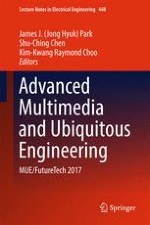2017 | OriginalPaper | Buchkapitel
Learning Reaction Analysis Engine for Interactive Digital Textbook Platform
verfasst von : Kwang Sik Chung
Erschienen in: Advanced Multimedia and Ubiquitous Engineering
Verlag: Springer Singapore
Aktivieren Sie unsere intelligente Suche, um passende Fachinhalte oder Patente zu finden.
Wählen Sie Textabschnitte aus um mit Künstlicher Intelligenz passenden Patente zu finden. powered by
Markieren Sie Textabschnitte, um KI-gestützt weitere passende Inhalte zu finden. powered by
